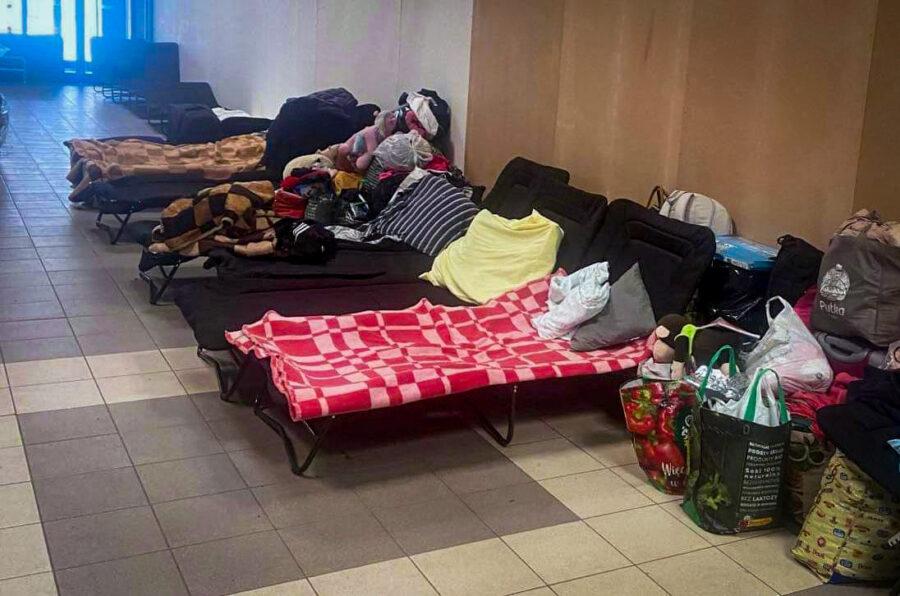In Poland, Romani refugees from Ukraine have faced discrimination and rejection from the start of Russia's full-fledged invasion

The beginning of Russia's full-fledged invasion of Ukraine found me in Warsaw. I had followed the news on TV that Putin would attack Ukraine, there was a lot of information and speculation on this subject in the media. On the morning of 24 February 2022, Russia indeed sent missiles into Ukraine. Still, there was hope that this was only an attempt to intimidate and cause panic. In Warsaw, large numbers of people were buying up goods and it was challenging to refuel my car because there were long queues at gas stations. People were afraid Putin would attack Poland as well.
That same day, thousands and then hundreds of thousands of people began to cross the border with Ukraine and to enter Poland. As a Romani activist in Poland, I received information within a short time about the Romani community from Ukraine trying to cross the border. I also heard about people who were not of ethnic Ukrainian origin who were not treated on an equal footing with other Ukrainian citizens fleeing the war.
I received many questions from various social organizations and coordinators of refugee accommodation places about how to help the Romani Ukrainian refugees. Amongst the requests for help were also complaints about the people of Romani origin arriving at the border: “They do not follow the rules of coexistence in the place”, “We see that ethnic Ukrainians do not want to stay near them.” I was surprised to see longstanding stereotypical opinions about Romani people resurfacing even in an emergency, during a war.
In a few days, my friends and I had set up an informal aid group on Facebook, which initially collected contacts about where new groups of Romani Ukrainians were heading, where in Warsaw they were staying, and what help they needed. We went to the border and witnessed that the Roma often stood separately from other people. The volunteers there approached the ethnic Ukrainian refugees with hot food, but the Romani Ukrainians were often never offered refreshments, or a ride, or accommodation. Indeed, if a Polish person decided to offer accommodation to a Ukrainian refugee, they even changed their minds once they saw a Romani person being designated to go to their home.
Accommodation of Ukrainian Romani refugees in smaller centres, e.g., hostels, also became problematic. Their owners and managers openly preferred to not host Romani people. Even organisations with a more tolerant ethos towards ethnic and religious minorities also expressed a preference not to accommodate Roma. In my own experience of working to accommodate a Ukrainian Romani woman and her children in a refugee accommodation centre provided by a religious centre near Warsaw, I encountered difficulties. The Romani woman and her three children were initially accommodated by the organisation, but at night the managers of the shelter called the police to take the Romani family away because of a complaint by other ethnic Ukrainians who feared the presence of Romani people in the building. In response to my inquiry about the complaint, the religious organisation claimed the accommodation was only for its members, although they had clearly made an exception for other, ethnic Ukrainian refugees.

In the end, most of the Ukrainian Romani refugees ended up being accommodated in larger, transitional facilities meant only for a stay of two or three days. Large shopping centres in Warsaw were adapted into such accommodation centres, and NGO representatives, including myself, were asked to help the Romani refugees living in these transitional centres. Amongst the many volunteers, there were also those who were highly prejudiced and who mistrusted Romani community members.
Moreover, there was a noticeable fear and mistrust among the Ukrainian Romani refugees themselves. Fleeing the war, leaving their relatives behind, not speaking the local language and not knowing who could help them, in addition to knowing they might be discriminated against for being the “different Ukrainians” made them very afraid. Many talked about rumours of criminal groups taking advantage of refugees under the pretext of helping them, and under the pressure, some gave up on staying in Poland and went back to Ukraine.
To this day, almost two years since the onset of the full-fledged invasion, as I continue to help Ukrainian Romani refugees in Poland, I encounter prejudice towards them. Take, for example, the issue of enrolling Ukrainian Romani children in the Polish schools. Headmasters are worried about their schools’ reputation and are not willing to enrol Romani Ukrainian children in their schools – while still accepting ethnic Ukrainian children. However, despite much reluctance based on fear and stereotypes to engage with Ukrainian Romani refugees, many other organisations and individuals have risen to the challenge and continue to support Romani refugees.
This article is based on research conducted as part of the “Unwanted Strangers” research project supported by the British Academy, led by Dr Iliana Sarafian, and hosted by the Centre for Public Authority and International Development at the Firoz Lalji Institute for Africa at the London School of Economics and Political Science.